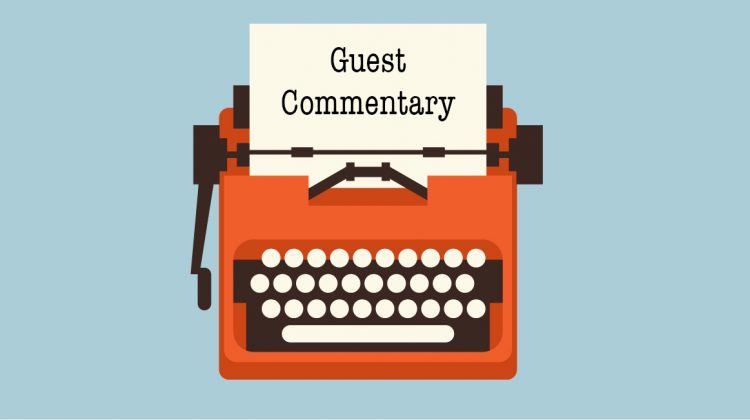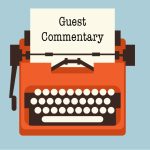David M. Shribman
NATIONAL PERSPECTIVE
MONTREAL — Don’t think of them as Toronto’s team. Think of them instead as Canada’s team.
Suddenly, the Toronto Blue Jays, underdogs in the World Series against the Los Angeles Dodgers, have an entire country behind them. The Dallas Cowboys may have adapted a colorful aside during their 1978 highlights film and made “America’s Team” their motto, but they never were embraced nationally the way the Blue Jays are now. Besides, the Jays are Canada’s only major-league baseball team.
But what really matters in the 2025 World Series is that, like February’s 4 Nations Face Off hockey tournament, simmering grievances against the United States and President Donald Trump have transformed a sporting event into a cultural clash that’s part of a massive surge in Canadian nationalism.
Now the Blue Jays are, in the words of Edward Rogers, executive chair of team owners Rogers Communications, “an inspiration for 41 million people in Canada from coast to coast.”
Trump is the bete noire of Canadian life, perhaps more prominent in daily conversation here than even in his own country. He’s threatened steep tariffs on Canada. He’s attacked the country’s sovereignty by suggesting it should be the 51st state. He denigrated former Prime Minister Justin Trudeau as “Governor Trudeau.” The very fact that the Conservative Party leader Pierre Poilievre had a surface similarity to Trump assured that the Liberal Mark Carney would be elected prime minister in last March’s federal election.
“Though a lot of Canadians hate Toronto, the Jays have a special place here — especially now because of the state of relations between the U.S. and Canada,” Vincent Rigby, a former Canadian national security adviser, said in an interview. “And we love how these American players love Canada.”
Now all those tensions are focused on the World Series, which the Blue Jays won in 1992 and 1993.
In truth, Trump has prompted a major transformation in the relations of the two countries, in effect all but severing the ties that John F. Kennedy celebrated in a 1961 address to the Canadian Parliament and that every Canadian politician and commentator seems to know by heart: “Geography has made us neighbors. History has made us friends. Economics has made us partners. And necessity has made us allies.”
No longer, apparently — a fact of contemporary life that Canadians mourn, so much so that those draping themselves in Canadiana after the Blue Jays’ victory in the American League Championship don’t have to be Canadians at all.
Listen to George Springer, whose seventh-inning home run put the Jays ahead in the seventh game of the championship game: “I’m just so happy for everybody here — our fans, our city, our country,” he said. He is from New Britain, Connecticut, and is married to American softball star from Kingston, New York.
Or to manager John Schneider, who spoke of how Canadians “have this team to grasp onto.” He was born in Princeton, New Jersey, and attended the University of Delaware. Now he drinks Tim Hortons coffee every morning.
All but a handful of the Jays are Americans. The team’s star, Vladimir Guerrero Jr., was born in Montreal, when his father, Vladimir Sr., played for the Montreal Expos, a team that broke the city’s heart when it committed the unforgivable sin of becoming the Washington Nationals in 2005.
“Ordinarily I’d say that if the great Vladimir’s son wins a World Series with the Jays, I would have final, conclusive proof there is no just God in heaven,” said Allen Habib, who has a Ph.D. from the University of Arizona and teaches a course on sex, love and death at the University of Calgary, which sits 1,675 miles from Rogers Centre, where the Jays play. “But in this environment, I am cheering for the upstart team from Toronto.”
So many Canadians are — even Quebec francophones who regard Toronto with the contempt Bostonians reserve for New York.
“People who care about baseball here in Quebec are definitely behind the Jays against an American team,” said Daniel Beland, director of the McGill Institute for the Study of Canada. “Winning might be good for national pride, but this World Series also underlines how closely the two countries’ geography and cultures are intertwined.”
Even that contributes to the current passion for the Jays.
Canadians have long resented how writers, artists and musicians have felt the need to win cultural appropriation in the United States, with actors flocking to Hollywood, a mere five miles from Dodger Stadium.
Just as Canadian writers such as Mordecai Richler (who wrote for The New Yorker) and Leonard Cohen (who wrote a song called “Chelsea Hotel No. 2,” inspired by his romance there with Janis Joplin), swarmed to New York, Canadians such as Raymond Burr, Glenn Ford, Walter Huston, Raymond Massey, Jay Silverheels and Jack Warner fled to Hollywood. One of them: Mary Pickford, known, pointedly, as “America’s Sweetheart.” She was born in Toronto.
Another flashpoint for Canadians: Los Angeles for many years was the home of hockey star Wayne Gretzky, revered in Canada … until it became known he had consorted with Trump and was photographed wearing a MAGA hat.
Some sports historians believe that baseball was more popular than hockey a century ago. When Jim Beattie, for six years the general manager of the Expos, was in a chartered bus traveling to the May 2000 funeral of the Montreal Canadiens legend Maurice Richard, the hockey luminaries sitting around him quizzed him about the team. “Canadians love their sports,” he said, “and in the summer, it’s baseball.”
It was here, in Montreal, where Jackie Robinson spent a single minor-league season, in 1946, playing for the Montreal Royals before breaking the color line as a member of the Dodgers, then in Brooklyn. A correspondent for the great Black newspaper The Pittsburgh Courier wrote of an episode in Montreal that he said was “the first time that a white mob chased a Black man down the street, not out of hate, but because of love.” My mother at 15 saw Robinson play in Montreal, a city he described as “a refuge from racism.”
Kyle Wyatt, a Nebraskan transplanted to Toronto who is the editor of the Literary Review of Canada, believes there are three certainties growing out of this best-of-seven series: “Toronto won’t be invited to celebrate in Trump’s White House. Canada won’t care. And the MAGA faithful won’t be able to stomach that we’re the ‘American’ League champions.”
A Swampscott High School Class of 1972 member, David M. Shribman is the
Pulitzer Prize-winning former executive editor of the Pittsburgh Post-Gazette.


